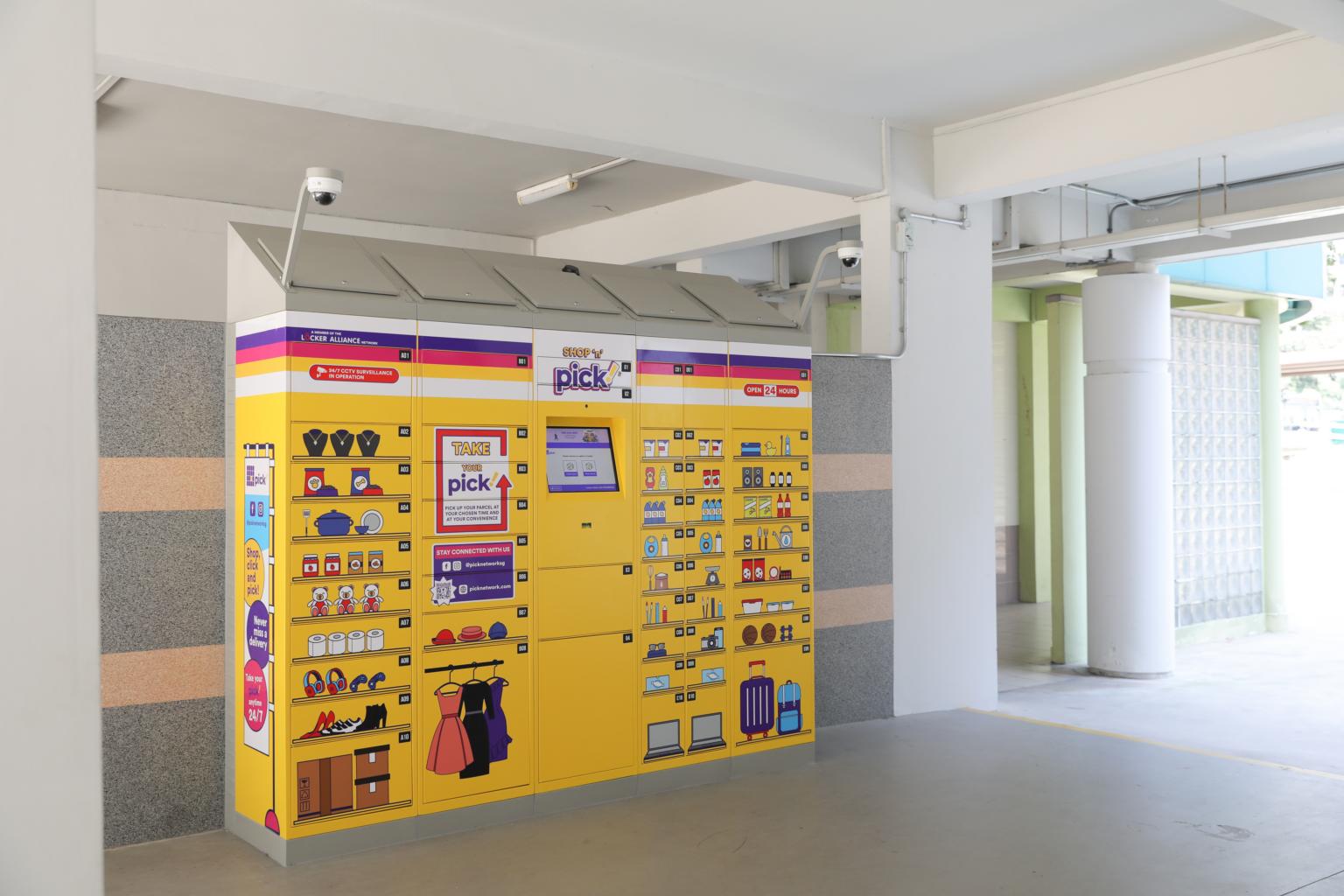Nationwide parcel locker network is neutral, accessible to all delivery providers: Sim Ann
Sign up now: Get ST's newsletters delivered to your inbox

The nationwide network of 1,000 locker stations will be managed by IMDA's wholly owned subsidiary, Pick Network.
ST PHOTO: ONG WEE JIN
SINGAPORE - The nationwide parcel locker network that is being rolled out will be run by the Government so that it is neutral and freely accessible to all delivery service providers and consumers, Senior Minister of State for Communications and Information Sim Ann said in Parliament on Monday (April 5).
Safety measures will be put in place to ensure that the lockers remain secure through both technology and laws that spell out offences such as tampering with the lockers.
To this end, the Postal Services Act was on Monday amended to grant the Infocomm Media Development Authority (IMDA) powers to deploy and operate the islandwide network. It comes at a time when e-commerce use and parcel volumes have skyrocketed, in part due to the pandemic.
"The vibrant last-mile delivery sector has thrived with open and free competition, and should be given room to flourish," said Ms Sim. "It is therefore our priority to facilitate an environment where all players can participate equitably."
Industry players in the logistics sector had expressly said during consultations that a national parcel locker network should be managed by a neutral operator to ensure open and non-discriminatory access for all players, Ms Sim told Parliament.
That and the need to roll out the locker network quickly to realise network effects are why the Government decided that the best option is to run such a locker system itself, said Ms Sim.
The nationwide network of 1,000 locker stations will be managed by IMDA's wholly owned subsidiary, Pick Network. The stations will be deployed at Housing Board estates, MRT stations, bus interchanges and community centres by the end of this year.
Ms Sim said Pick was chosen to run the network as public infrastructure to "avoid conferring an unfair competitive advantage upon any single player".
Originally slated to be ready by end-2022, the schedule for the roll-out was pushed forward by a year to ease the strain on delivery manpower.
It will also complement the existing letterbox infrastructure, which is not designed for parcel deliveries.
While mail volume has declined by 27 per cent between 2010 and 2019, the e-commerce sector here has been expanding rapidly, and is projected to grow by an compound annual growth rate of 16 per cent from 2020 to 2025.
But parcel deliveries, typically to consumers' doorstep today, has a chequered report card. About 7 per cent of doorstep deliveries are unsuccessful, wasting manpower.
Currently, commercial parcel lockers tend to be concentrated in high-traffic commercial areas and leave residential areas under-served, said Ms Sim, who noted that they cater to just 5 per cent of total parcel volume.
During a debate, several Members of Parliament, such as Mr Patrick Tay (Pioneer), raised concerns about the security of the lockers, especially since they will be deployed at public spaces and will be accessible to many delivery service providers.
Ms Sim said closed-circuit cameras will be deployed at each station, as well as sensors that can detect if lockers contain objects when they should not.
Each locker station will have two cameras, which will come in handy both for incidents of alleged theft as well as disputes over the handling of parcels. Each compartment will also have presence sensors to alert Pick of suspicious items, or if locker doors are not securely fastened.
With the amendments, IMDA has the power to direct the network operator to search the lockers and detain suspected harmful items if they are found.
The police and authorised IMDA officers also have the power to search the lockers and seize any items that is suspected to pose a threat to public health or safety.
Other offences introduced to protect the network include making it an offence to damage or tamper with the network, while anyone who destroys, steals, or otherwise intercepts parcels from the lockers may face a jail term or a fine.
Mr Yip Hon Weng (Yio Chu Kang) asked if the widespread use of these parcel lockers would mean that businesses may be inclined to cease doorstep delivery, or offer it at a higher cost.
This would work against groups like the elderly, who may be less mobile and rely on doorstep deliveries for items such as groceries, he said.
In response, Ms Sim said she believes that doorstep delivery is likely to continue.
"It is precisely because doorstep delivery is manpower-intensive and not sustainable as a long-term default that we believe businesses are likely to continue to offer doorstep delivery at a reasonable rate to consumers if they're able to achieve productivity gains elsewhere, such as the kind of productivity gains we anticipate from the deployment of the network," she said.


